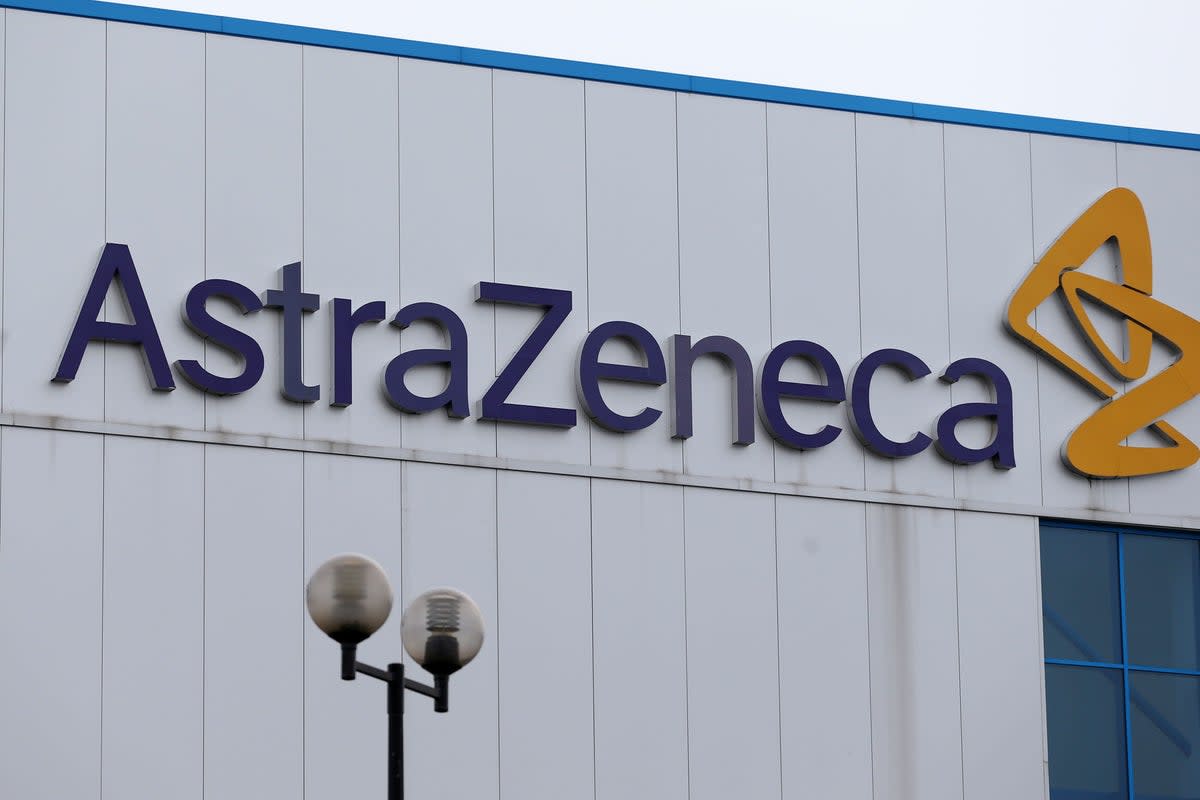AstraZeneca just dropped some pretty big news that’s got everyone talking, and it’s not the kind of headline Britain was hoping to see. The pharmaceutical giant has put the brakes on a massive £200 million investment that would’ve created 1,000 jobs in Cambridge, and people are starting to ask some serious questions about what’s going on.
This isn’t just any company we’re talking about here. AstraZeneca is Britain’s biggest publicly traded company and one of the most important names in the global pharmaceutical world. When they make moves like this, it sends ripples through the entire industry.
But here’s the thing – this latest decision didn’t happen in a vacuum.
The Cambridge Project Gets Put on Ice
The investment that AstraZeneca has paused was supposed to be a big deal for Cambridge. We’re talking about expanding their research site right next to their existing global R&D Discovery Centre, where 2,300 researchers and scientists already work every day developing the medicines of tomorrow.
The plan was announced back in March 2024 by the previous government with all the usual fanfare. Politicians talked about it as proof that Britain was still a world leader in life sciences, and AstraZeneca seemed committed to making the UK a key part of their future.
Fast forward to September 2025, and the company’s spokesperson delivered a pretty brief statement: “We constantly reassess the investment needs of our company and can confirm our expansion in Cambridge is paused. We have no further comment to make.”
That’s it. No detailed explanation, no timeline for when they might reconsider, just a pause that’s left 1,000 potential jobs hanging in the balance.
It’s Not Just Cambridge
Here’s where the story gets more concerning for Britain. This AstraZeneca decision isn’t a one-off situation. Back in January, the company already scrapped plans to invest £450 million in a vaccine manufacturing plant in Liverpool, citing reduced government support.
That means none of the £650 million in UK investments that AstraZeneca announced with such fanfare in 2024 are currently going ahead. Zero. Zilch.
At the same time AstraZeneca was pulling back from the UK, they were making very different noises about investing elsewhere. In July, the company announced plans to spend a whopping $50 billion expanding their US operations by 2030. That’s roughly £37 billion – way more than they were ever planning to spend in Britain.
The timing isn’t coincidental. With Donald Trump back in the White House and threatening tariffs on pharmaceutical imports, AstraZeneca and other drug companies are clearly hedging their bets by investing more heavily in America.
The Bigger Picture Problem

AstraZeneca isn’t the only pharmaceutical company having second thoughts about the UK. Just this week, US drug giant Merck announced it was abandoning plans for a new research centre in London, blaming what they called the UK’s “challenging business environment.”
Industry leaders are getting increasingly frustrated with Britain’s approach to the pharmaceutical sector. The Association of the British Pharmaceutical Industry warned this week that Britain is “increasingly being ruled out of consideration as a viable location for pharmaceutical investment.”
The numbers tell a pretty stark story. Over the last decade, UK spending on medicines has fallen from 15% of the NHS budget to just 9%, while other developed countries spend between 14% and 20%. When companies like AstraZeneca are making investment decisions, those kinds of figures really matter.
What’s Really Going On?
So what’s driving AstraZeneca and other pharmaceutical companies to look elsewhere? There are several factors at play, and they all paint a picture of a country that’s becoming less attractive to major drug companies.
Government funding cuts are a big part of the story. When AstraZeneca cancelled their Liverpool project, they specifically cited reduced government support. The current Labour government has been trying to rein in spending commitments made by their predecessors, and pharmaceutical investments have apparently been caught in that squeeze.
Brexit aftermath continues to create headaches for companies like AstraZeneca. Even though the UK left the EU years ago, the regulatory complexity and supply chain disruptions are still causing problems. AstraZeneca has had to duplicate testing processes and reorganize their European operations, adding costs and complexity.
Drug pricing disputes have created ongoing tension between the government and pharmaceutical companies. Negotiations between the industry and the Department of Health over how much revenue should be returned to the NHS have completely stalled, creating uncertainty that makes long-term investment planning difficult.
International competition is heating up. While Britain haggles over support packages, countries like Singapore, the US, and Canada are rolling out the red carpet for pharmaceutical investments. AstraZeneca has recently announced major investments in all three countries.
The Human Cost
Behind all these big numbers and corporate decisions are real people whose futures are being affected. The 1,000 jobs that AstraZeneca was planning to create in Cambridge aren’t just statistics – they represent families, careers, and contributions to the local economy.
Cambridge has built its reputation as one of Europe’s leading life sciences hubs partly because of companies like AstraZeneca. When major employers start pulling back on investment, it doesn’t just affect direct employment – it impacts the entire ecosystem of suppliers, services, and supporting businesses.
Current AstraZeneca employees are also watching these developments with concern. The company employs over 6,500 people in the UK, and while there’s no immediate threat to existing jobs, the lack of new investment raises questions about the long-term prospects for career growth and development.
Government Under Pressure

This AstraZeneca decision comes at a particularly awkward time for Prime Minister Keir Starmer’s government. They’ve been talking up Britain’s potential as a life sciences superpower and trying to attract international investment to boost the country’s sluggish economy.
Having your biggest publicly traded company pause major investments just days before a state visit from President Trump doesn’t exactly send the right message to other potential investors.
The government has been relatively quiet about AstraZeneca’s latest decision, but behind the scenes, there are likely some pretty intense discussions happening about how to repair relationships with the pharmaceutical industry.
What Happens Next?
AstraZeneca’s investment pause doesn’t necessarily mean these projects are dead forever, but getting them back on track won’t be easy. The company’s CEO Pascal Soriot has been increasingly vocal about his concerns regarding the UK business environment, and those concerns clearly haven’t been addressed yet.
The government will need to decide whether supporting pharmaceutical investments is worth the financial cost. With public spending under pressure and competing priorities everywhere you look, finding hundreds of millions for corporate subsidies isn’t an easy political sell.
For AstraZeneca, the company has plenty of other options for where to invest their money. Their recent commitments to major expansions in the US, Singapore, and other countries show they’re not short of alternatives to the UK.
The pharmaceutical industry will be watching closely to see how this plays out. If AstraZeneca can’t get satisfaction from the UK government, it’ll send a pretty clear signal to other companies about what they can expect.
This story is really about more than just one company’s investment decisions. It’s about whether Britain can maintain its position as a global leader in life sciences, or whether the country’s ongoing economic and political challenges will continue to drive investment elsewhere.
The clock is ticking for both AstraZeneca and the UK government to find a way forward that works for everyone.
